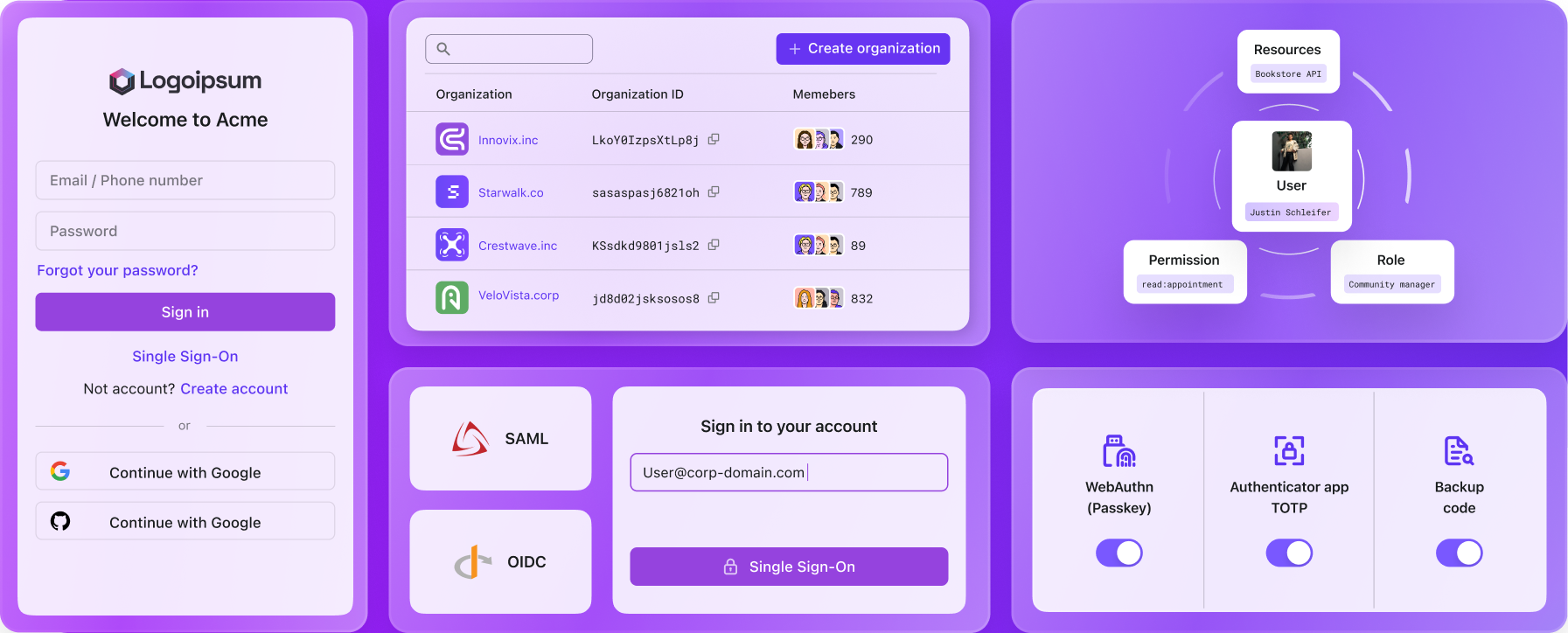Why open standards are the choice for modern identity and access management
Open standards such as OpenID Connect and OAuth 2.0 are the foundation of modern identity management. Today we'll look at why they're so important.
Introduction
Have you ever wondered why OpenID Connect and OAuth 2.0 are everywhere in tech documentation? Beyond the complex RFCs and tech speak, there's a real question: what makes these standards crucial for today's identity management?
Understand the challenge
To grasp their importance, let's first look at the challenges they address. In the internet's early days, managing identity was straightforward: a username and a password sufficed. But as the internet grew, this simplicity fell short. Consider these scenarios:
- Users forgetting passwords.
- Need for various authentication methods.
- Incorporating social logins or company identity providers.
- Creating detailed authorization models with user-specific permissions.
This list only scratches the surface of a growing complexity. Imagine building the similar systems for every project. Here, open standards shine by offering a universal language for developers.
The blossoming community
Open standards, true to their name, are accessible to all. Crafted by expert communities, they're designed for global developer usage. This openness fosters tool and library development, which developers then share with the community (it's also called "open source"). This interaction between open standards and open source rapidly advances identity management. For instance, OAuth 2.0, adopted by giants like Google and Facebook, is supported by a plethora of open-source tools and libraries.
In essence, they're the turbocharge for modern identity management.
Battle-tested
These popular standards have withstood over a decade of use by millions of developers and billions of users. They've proven secure and reliable. Many security issues in the past arose from custom-made authentication systems. Designing these systems is challenging, and ensuring expert review and audits even more so.
With open standards, you leverage industry-leading expertise, obtaining a pre-tested solution. This offers confidence in security and reliability (assuming proper implementation).
Open standards for open platforms
When building a platform for service integration or developer expansion, ease of integration is key. Open standards, being the universal developer language, eliminate the need to reinvent the wheel. This unified approach streamlines integration, making your platform more accessible and user-friendly.
Future-proofing with flexibility
Open standards do more than solve present challenges; they're designed to adapt to future needs. Take the OAuth extensions as a prime example. They demonstrate how open standards can evolve to meet emerging technological needs and security challenges. Extensions like Token Exchange and Device Authorization Grant address specific use cases like facilitating the exchange of tokens between different authorization servers or enabling secure access for IoT devices.
This flexibility is key to adapting to new market trends, user behaviors, and regulatory changes, making sure that your platform remains at the forefront of technology and compliance.
Global compliance, local relevance
With open standards, you're not just adhering to current best practices; you're also prepared for global compliance challenges. These standards often incorporate considerations for international privacy laws like GDPR or CCPA, ensuring that your platform meets diverse legal requirements. Additionally, they provide the flexibility to cater to local preferences and regulations, making your platform globally competent yet locally relevant.
Logto embraces open standards
As we've explored the vital role of open standards in modern identity management, it's fitting to mention our own product Logto. Logto is an identity infrastructure that not only embraces open standards like OAuth 2.0 and OpenID Connect but also offers the flexibility of an open-source, self-hosted version.
The open-source nature of Logto aligns with the community-driven ethos of open standards. It ensures transparency, customizability, and the freedom to adapt the platform to specific needs and contexts. Without open standards and open source, Logto wouldn't be possible.
In conclusion, as the digital world becomes increasingly interconnected, the need for reliable, flexible, and user-friendly identity management solutions becomes important. Open standards provide the foundation for such solutions, and platforms like Logto are at the forefront of embracing these standards to offer powerful, adaptable, and future-proof identity infrastructures. Whether you're a developer, a small business, or a large enterprise, Logto is tailored to meet the diverse and dynamic needs of modern digital identity management.

